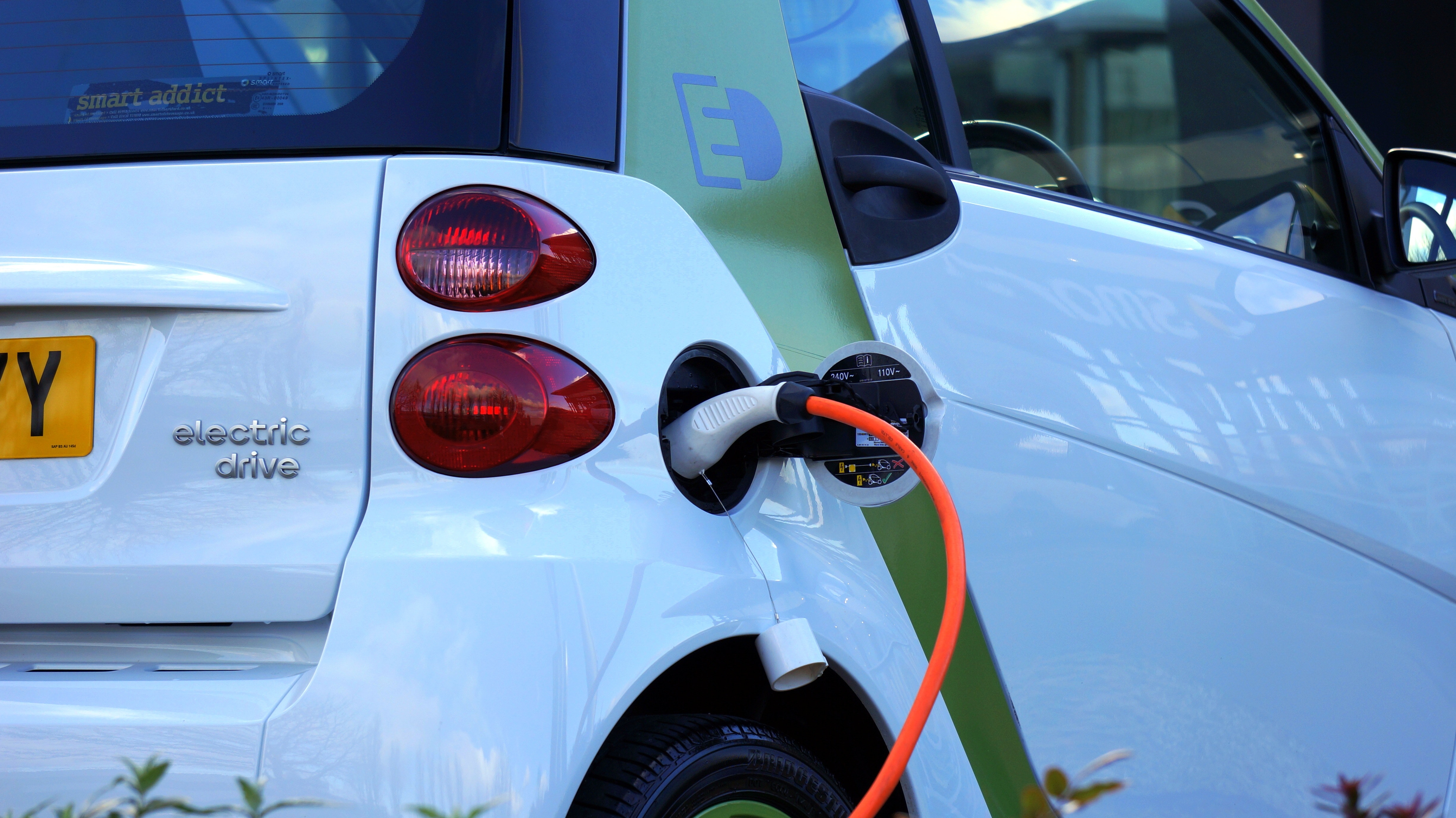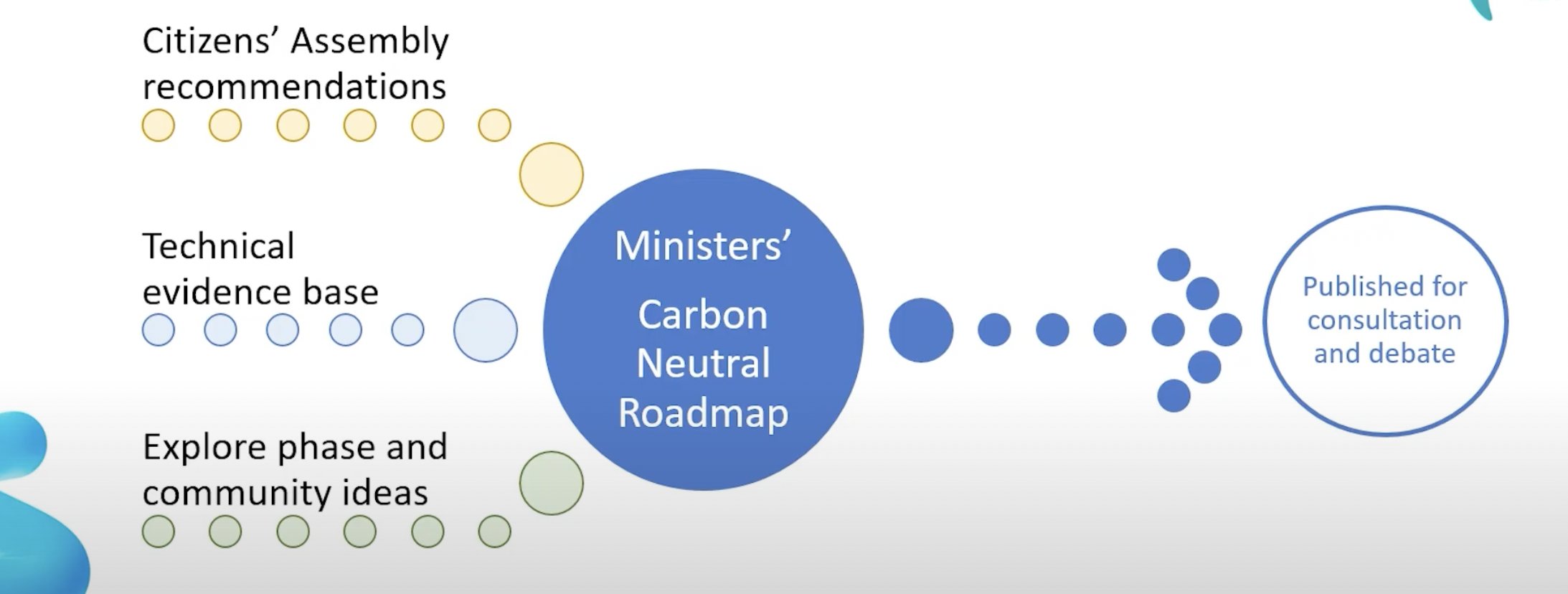


A new £70,000 report commissioned by Government to consider whether the 2030 target for carbon neutrality should remain or be pushed back has troubled the politician behind moves to declare a climate emergency.
Deputy Rob Ward told Express he is "concerned" at what he sees as a lack of commitment by the Government to reach a 2030 target, as well as the new report's emphasis on 'offsetting' emissions.
“The [Government] seems far too focused on offsets to transition to zero carbon. At the same time, it has opposed all actions to increase public transport use. It opposed the removal of duty on sustainable diesel, and makes token gestures towards cycling and walking networks," Deputy Ward said.
He further added he felt the Government was "trapped" in a fixed mindset of 2050 for the target date - the date set in the Paris Agreement - and that he would be continuing to encourage the 2030 date as the primary goal.
The recent report on target dates, which specifically focuses on transport and heating, has been presented to the newly formed Citizens' Assembly - a panel of 45 islanders selected at random, and broadly representative of the island as a whole, who will be making recommendations to the Government based on reviewing reports and evidence.
The report comes from economic consultancy firm Oxera, and cost £70,000.
It was presented as a 'briefing note' to the Citizens' Assembly on the advantages and disadvantages of different Net Zero targets for the island, though emphasises that it "does not attempt to provide recommendations on which Net Zero target to choose."
Express took a closer look at the report, and the reactions to it...
The bulk of the report weighs up the pros and cons of either setting an early target date (i.e 2030) or a later one (i.e. 2050). The six main ‘trade-offs’ that it presents are:
The report estimates that a 2030 target would cost the Government up to £306m based on a specific set of policy options, plus an additional amount of up to £88m in residual offset reductions following this date.
Breaking down these estimates, referring back to one of their earlier reports, Oxera states that the main policy options identified as having the most impact in reaching the target for road transport and heating would be:
If these options were pursued, combined with the offsets following the 2030 date, they could incur a combined cost of between £60m to £360m.

Pictured: Facilitating second generation biodiesel such as HVO is listed as one of the key policies for the Government to take up if it wants to reach carbon neutrality by 2030.
The range of this would depend on specific policy choices, like the incentives paid to people to switch to electric vehicles.
In a diagram weighing the targets - 2030, 2040, 2045 and 2050 - it outlines that this target would lead to the most emissions reductions, social and environmental benefits, economic benefits and repetitional benefits.
However, it says it would also be the least cost-effective and have more practical constraints in regards to areas like supply chains and infrastructure.
The report does not have estimates for 2050, saying that costs are “expected to differ from the cost estimate for [2030]” but that they would “be spread over a longer time period so annual costs may be lower,” as well as there being fewer offsets past the target date.
On this note, it assumes that due to the later date, greater emissions reductions can be achieved by the 2050 target, meaning the fewer offsets afterwards - however, it adds that as it reaches this point later, Jersey’s emissions over time would be higher in total than they would be with a 2030 target.

Pictured: One of the advantages in having a 2050 target the report outlines would be that technology such as electric vehicles could improve or be more cheaper to invest in.
In a diagram weighing the targets - 2030, 2040, 2045 and 2050 - the report says that this would be the most cost effective and have the benefit of fewer financial constraints, with supply chains and infrastructure having their development/rearrangement spread across a longer period.
However, it would have the least emissions reductions, social and environmental benefits, economic benefits and repetitional benefits.
The report states that “offsets on their own are not a route to carbon neutrality and should only be used where they are accompanied by robust and ambitious measures to reduce emissions.”
However, it goes on to say that Jersey has a “relatively high” dependence on marine and aviation transport for goods and services, and that the emissions in these sectors would have to be “offset rather than abated in the medium term.”
If the island aims for a 2030 carbon neutral target, the report says that the residual cost of offsetting any remaining emissions from transport and heating would take until 2050, costing between £2.7m to £4.4m per annum, totalling up to £88m. This is not including additional costs for other sectors.

Pictured: The report states that as the island is still dependent on planes and marine transport, offsets will have to be incurred in the medium term.
Its findings for a 2050 (and beyond) target are less detailed, and assume that there would be greater emission reductions by the target date, and that as the policies were spread out over a longer time, that the annual cost burden “may be lower.”
It does not give overall figures for 2050 or the remaining emission offsets that would follow 2050, stating that this would depend on future offset costs and the impact that decarbonisation policies have on reducing emissions by that target.
However, from a heating perspective, leaving the target till 2050 could incur higher costs from offsetting, due to the expected price increase in offsets as time goes by. While a 2030 target indicates a price range of £53m to £146m for the decarbonisation of heating, the 2050 target would see that range increase to £54m to £159m.
Having considered the report, Deputy Ward, who was behind proposals for Jersey to declare a climate emergency and set a 2030 target, told Express: “I have been concerned at the lack of a genuine commitment by GOJ to a 2030 target since the adoption of my proposition. A key part of the report is this statement: ‘Any emissions, no matter how minor, contribute to climate change. Net Zero will allow Jersey to end its contribution to climate change.’
“So, we have a decision as to whether we are happy as an island to continue to contribute to climate change for another 20 years or address the issue with genuine action."

Pictured: Deputy Rob Ward stated his concerns that the Government were not committing to the 2030 aim he had put in his initial proposition, and that too much emphasis was being placed on offsetting as a solution.
He continued: “The [Government] seems far too focused on offsets to transition to zero carbon. At the same time, it has opposed all actions to increase public transport use. It opposed the removal of duty on sustainable diesel and makes token gestures towards cycling and walking networks.
“It is missing an opportunity to reset our travel habits following the pandemic and seems to be trapped in a fixed mindset of 2050. A date already set by the government before any propositions were passed in the state's assembly.
"I hope that the Citizens’ Assembly are receiving a full brief on the wider options and not an offset biased briefing of dealing with the pressing issue of climate change.
“I will continue to encourage the 2030 target. I would rather us miss this by a couple of years than build in 20 more years of contribution to climate change.”
The States Assembly voted to go forward with Deputy Ward's climate emergency plan in May 2019, which involved asking the Environment Minister to bring to draw up a strategy aiming to achieve Carbon Neutrality by 2030.
This strategy was then presented to the States Assembly by the Minister in February 2020, with 41 Assembly members voting in favour.

Pictured: The strategy leading to the Environment Ministers' Carbon Neutral roadmap.
The strategy proposed that a Citizens' Assembly of islanders, guided by expert advice, would review a number of reports and evidence - including reviewing different target dates for net zero carbon neutrality, despite the 'aim' of a 2030 date.
This evidence would then be presented before the States Assembly to debate and decide on which ones to include in a long-term climate action plan - or "roadmap" as it is now called - alongside technical evidence and community ideas.
The Government is hoping to publish this 'roadmap' for consultation and Scrutiny review from September, and then put it forward for debate by the States Assembly in early 2022.
Emelita Robbins, the Citizens' Assembly Co-Convenor Chair and spokesperson, said that part of the reason the 2050 date was presented was to consider Jersey's obligations as a signatory of the 'Paris Agreement', which sets out a long-stop date for governments around the globe to reach decarbonisation, while emphasising there was no "magic date" either.
"Oxera presented data that included the advantages and disadvantages for achieving zero emissions in Jersey in 2030, 2040, 2045 and 2050," she said.
"It was made clear to participants that the adoption of any Net Zero target date and the associated policies, will entail different combinations of advantages and disadvantages to our community and a range of trade-offs.
"Jersey is obliged to develop long-term strategies on how it plans to achieve the greenhouse gas emissions reductions needed to meet its commitments under the Paris Agreement by the agreed longstop date.
"Critically, however, Jersey does have a choice as to how to decarbonise in order to meet that commitment.
"It’s this question that has been put before the members of the Citizens’ Assembly and the pace of change is a critical element of that determination. In order for any recommendation by the assembly members to be credible, the independent Oxera report was commissioned so as to put the relevant data before participants."
Pictured top: Aerial shot of Jersey courtesy of Danrok/Wiki.
Comments
Comments on this story express the views of the commentator only, not Bailiwick Publishing. We are unable to guarantee the accuracy of any of those comments.